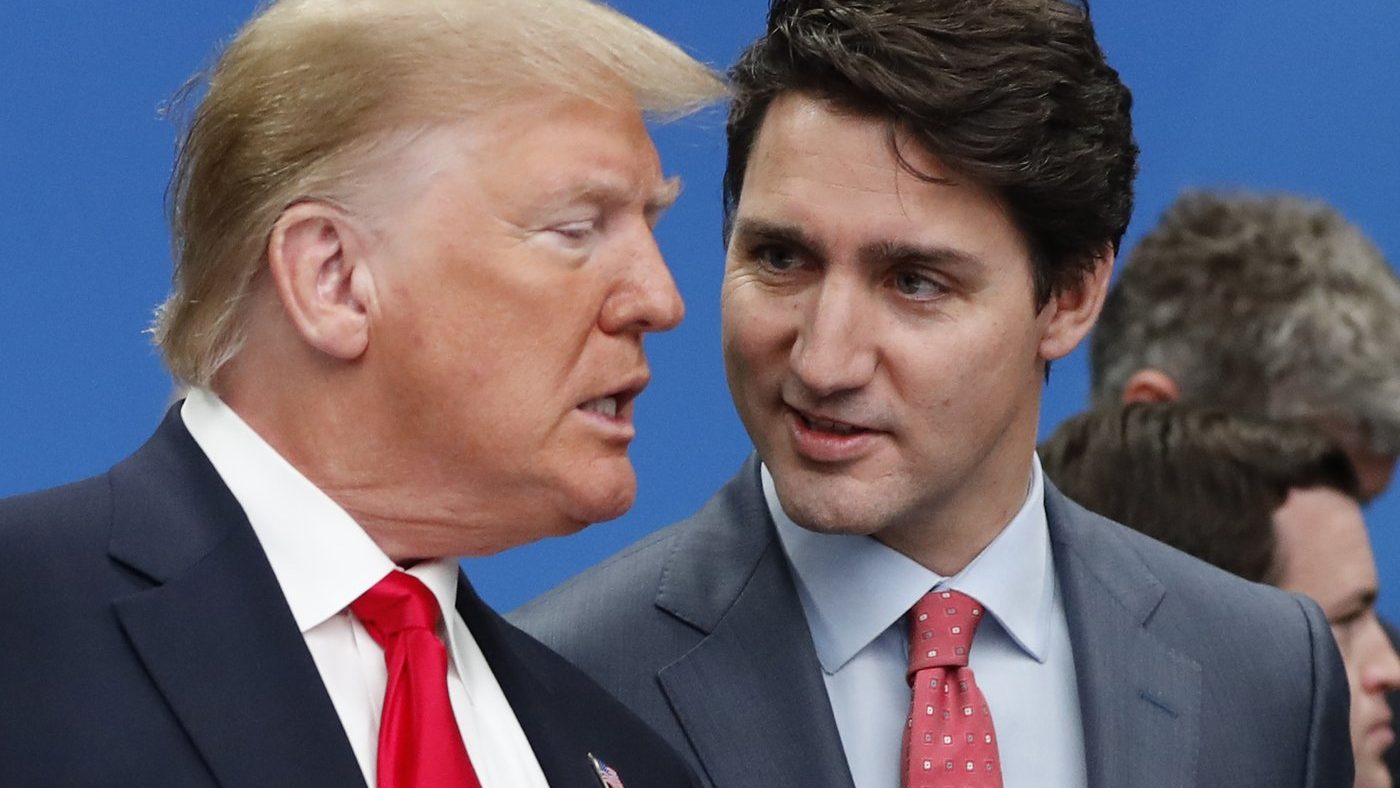Canada
U.S. tariffs on Canadian goods paused for 30 days: Trudeau

Canadian Prime Minister Justin Trudeau says U.S. President Donald Trump has agreed to pause a 25 per cent tariff on Canadian goods after Trudeau promised to bolster border security.
The tarrifs were set to go into effect on Tuesday, but will now be paused for at least 30 days while the two sides work towards a permanent deal.
The news comes after the second phone call between the two leaders on Monday.
Some of the new measures include appointing a Fentanyl Czar, listing cartels as terrorists, and launching a new Canada-U.S. Joint Strike Force to combat organized crime.
The White House confirmed the pause to the United States, which followed a similar move with Mexico that allows for a period of negotiations about drug smuggling and illegal immigration.
There is a risk that the tariffs could still come into effect, leaving the global economy uncertain about whether a crisis has been averted or if a possible catastrophe could still be coming in the weeks ahead.
Trump on Saturday had directed 25% tariffs on imports from Mexico and Canada, with another 10% tariff on Canadian oil, natural gas and electricity. He also ordered an additional 10% tax on imports from China.
All of the tariffs were scheduled to start at midnight Tuesday. Canada and Mexico threatened retaliation, raising the prospects of a broader regional trade war.
Asked Monday afternoon what Canada could offer in talks to prevent tariffs, Trump told reporters gathered in the Oval Office: “I don’t know.” He mused about trying to make Canada the 51st state.
Trump has continued to antagonize Canada in recent weeks. He used a Monday social media post to repeat his complaints that Canada has been uncooperative, despite decades of friendship and partnerships that range from World War II to the response to the 9/11 terrorist attacks.
“Canada doesn’t even allow U.S. Banks to open or do business there,” Trump posted. “What’s that all about? Many such things, but it’s also a DRUG WAR, and hundreds of thousands of people have died in the U.S. from drugs pouring through the Borders of Mexico and Canada.”
Financial markets, businesses and consumers are trying to prepare for the possibility of the new tariffs. Stock markets sold off slightly, suggesting some hope that the import taxes that could push up inflation and disrupt global trade and growth would be short-lived.
But the outlook reflected a deep uncertainty about a Republican president who has talked with adoration about tariffs, even saying the U.S. government made a mistake in 1913 by switching to income taxes as its primary revenue source.
Kevin Hassett, director of the White House National Economic Council, said Monday that it was misleading to characterize the showdown as a trade war despite the planned retaliations and risk of escalation.
“Read the executive order where President Trump was absolutely, 100% clear that this is not a trade war,” Hassett said. “This is a drug war.”
But even if the orders are focused on illegal drugs, Trump’s own remarks have often been more about his perceived sense that foreign countries are ripping off the United States by running trade surpluses. On Sunday, Trump said that tariffs would be coming soon on countries in the European Union. He has discussed tariffs as both a diplomatic tool on national security issues, a way to raise revenues and a vehicle for renegotiating existing trade pacts.
Multiple economists outside the administration have warned that the tariffs would push up prices and hamper growth, with Trump himself saying there would be some short term pain after having campaigned last year on the promise that he could tame inflation.
